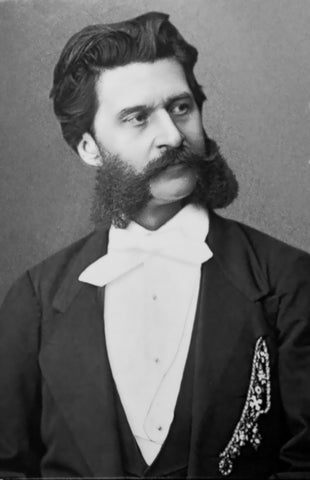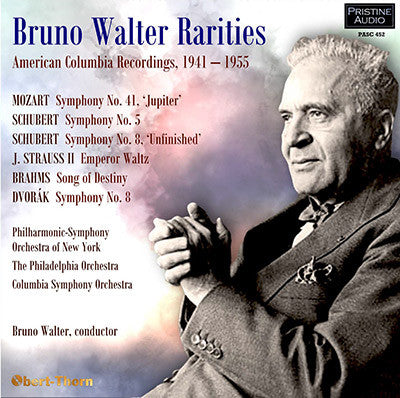Strauss J

Johann Strauss II (October 25, 1825 – June 3, 1899), also known as Johann Strauss Jr., the Younger, the Son (German: Sohn), Johann Baptist Strauss, was an Austrian composer of light music, particularly dance music and operettas. He composed over 500 waltzes, polkas, quadrilles, and other types of dance music, as well as several operettas and a ballet. In his lifetime, he was known as "The Waltz King", and was largely then responsible for the popularity of the waltz in Vienna during the 19th century.
Strauss had two younger brothers, Josef and Eduard Strauss, who became composers of light music as well, although they were never as well known as their elder brother. Some of Johann Strauss' most famous works include "The Blue Danube", "Kaiser-Walzer" (Emperor Waltz), "Tales from the Vienna Woods", and the "Tritsch-Tratsch-Polka". Among his operettas, Die Fledermaus and Der Zigeunerbaron are the best known.
Strauss was admired by other prominent composers: Richard Wagner once admitted that he liked the waltz "Wein, Weib und Gesang" Op. 333. Richard Strauss (unrelated to the Strauss family), when writing his Rosenkavalier waltzes, said in reference to Johann Strauss, "How could I forget the laughing genius of Vienna?"
Johannes Brahms was a personal friend of Strauss; the latter dedicated his waltz "Seid umschlungen, Millionen!" ("Be Embraced, You Millions!"), Op. 443, to him. A story is told in biographies of both men that Strauss's wife Adele approached Brahms with a customary request that he autograph her fan. It was usual for the composer to inscribe a few measures of his best-known music, and then sign his name. Brahms, however, inscribed a few measures from the "Blue Danube", and then wrote beneath it: "Unfortunately, NOT by Johannes Brahms."

Strauss J
Johann Strauss II (October 25, 1825 – June 3, 1899), also known as Johann Strauss Jr., the Younger, the Son (German: Sohn), Johann Baptist Strauss, was an Austrian composer of light music, particularly dance music and operettas. He composed over 500 waltzes, polkas, quadrilles, and other types of dance music, as well as several operettas and a ballet. In his lifetime, he was known as "The Waltz King", and was largely then responsible for th...
SCHUBERT Symphony No. 5
SCHUBERT Symphony No. 8, ‘Unfinished’
J. STRAUSS II Emperor Waltz
BRAHMS Song of Destiny
DVOŘÁK Symphony No. 8
Producer and Audio Restoration Engineer: Mark Obert-Thorn
Total duration: 2hr 18:46
Philharmonic-Symphony Orchestra of New York
The Philadelphia Orchestra
Columbia Symphony Orchestra
Bruno Walter, conductor
- Previous
- Page 6 of 6
-
Next

